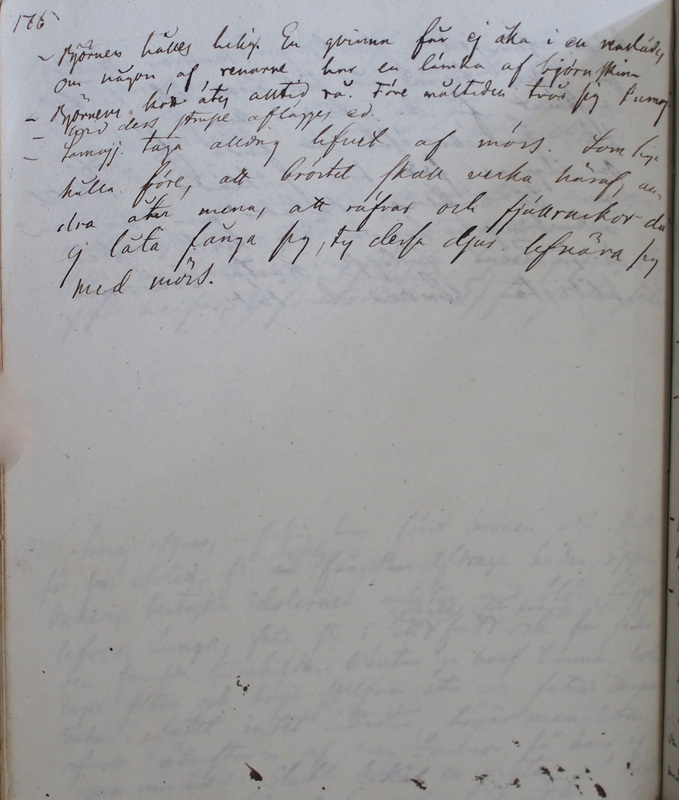Ethnographiska, historiska och statistiska anmärkningar. 176
Title
Ethnographiska, historiska och statistiska anmärkningar. 176
Description
| Björnen hålles
helig.
En qvinna får ej åka i en rensläde,The ambiguous nature of both brown (TN варк) and white (TN сэрʹ варк) bears is reflected in the multitude of circumlocutions such as TN париденя, педарэй, панэда парико, ваңгутана мэна, ири, хэбидя, and сэрʹ, явы respectively. The restrictions related to women are in line with the practices described in [Qvinnor]. (Chomič 1976: 26)
om någon af renarne har en <lämka> af björnskinn. |
The bear is considered to be sacred. A woman is not allowed to ride in a reindeer sledge if any of the reindeer have a bearskin <-->. |
| Björnens
kött
ätes alltid rå. Före måltiden tvås sig <--->See also Chomič 1966: 135.
|
Bear meat is always eaten raw. Before the meal, they wash themselves <---> |
| Wid ders strupe aflägges
ed.
Taking an oath by the bear is also mentioned, in addition to ethnographic sources, also in documents related to colonial administration. (Perevalova 2019: 44-45)
|
An oath is taken by the throat of the bear. |
| Samojj.[Samojeder] taga alldrig lifvet af möss. Somliga hålla före, att bröstet skall verka häraf, an- dra åter mena, att räfvar och fjällrackor då ej låta fånga sig, ty dessa djur lifnära sig med möss. |
Samoyeds never take the lives of mice. Some point out that it would have an impact on the chest; others say that foxes and Arctic foxes would not allow themselves to be captured, as these animals feed on mice. |

